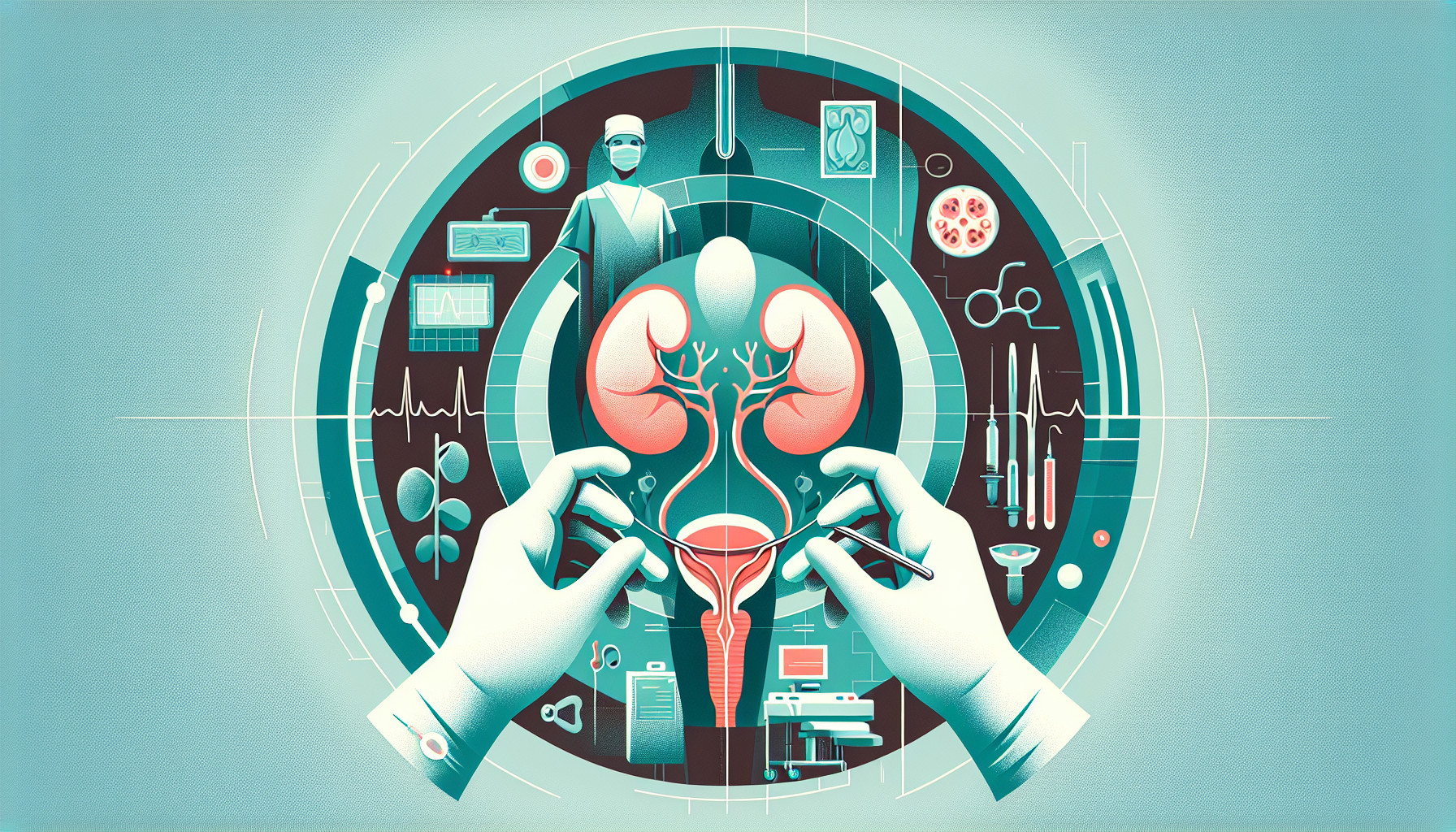Our Summary
This paper looks at recent improvements and challenges in the diagnosis and treatment of bladder cancer. The authors reviewed research from 2013 to 2021 and found that guidelines from pathology organizations have helped improve how doctors diagnose and treat this disease. There has been more focus on determining the exact stage and type of the tumor. However, there is still some disagreement about how to classify lymph nodes, which are important for understanding the spread of the cancer. The way samples are prepared for examination is also not standardized and could be improved. The use of genetic information in diagnosis and treatment is growing, but it’s not yet a big part of how doctors manage bladder cancer. In short, while there have been advancements, there are still areas in the diagnosis and reporting of bladder cancer that can be improved.
FAQs
- What are the recent improvements in diagnosis and treatment of bladder cancer?
- What challenges still exist in the classification of lymph nodes in bladder cancer diagnosis?
- How is genetic information being used in the diagnosis and treatment of bladder cancer?
Doctor’s Tip
One helpful tip a doctor might tell a patient about bladder surgery is to follow their post-operative care instructions carefully, including taking all prescribed medications, avoiding strenuous activities, and attending follow-up appointments. It is important to communicate any concerns or changes in symptoms to your healthcare provider promptly to ensure proper healing and optimal outcomes.
Suitable For
Patients who are typically recommended bladder surgery include those with bladder cancer that has not responded to other treatments such as chemotherapy or immunotherapy, those with muscle-invasive bladder cancer, those with recurrent bladder cancer, and those with non-muscle-invasive bladder cancer that has a high risk of progressing to muscle-invasive disease. Additionally, patients with bladder dysfunction or urinary incontinence may also be recommended for bladder surgery to improve their quality of life. Ultimately, the decision to undergo bladder surgery should be carefully considered and discussed with a healthcare provider to determine the best course of action for each individual patient.
Timeline
Before bladder surgery:
- Patient experiences symptoms such as blood in urine, frequent urination, pain during urination, and urinary urgency.
- Patient undergoes various tests such as urine analysis, imaging tests (CT scan, MRI), cystoscopy, and biopsy to diagnose bladder cancer.
- Once diagnosed, patient discusses treatment options with their healthcare team, which may include surgery, chemotherapy, radiation therapy, or a combination of these.
After bladder surgery:
- Patient undergoes preoperative preparations such as fasting and bowel preparation.
- Patient undergoes bladder surgery, which may involve transurethral resection of bladder tumor (TURBT), partial cystectomy, or radical cystectomy.
- After surgery, patient may experience pain, discomfort, and urinary catheterization for a period of time.
- Patient is monitored closely for any complications or side effects of surgery.
- Patient undergoes follow-up appointments, imaging tests, and possibly further treatment depending on the stage and type of bladder cancer.
What to Ask Your Doctor
- What type of bladder surgery is recommended for my specific condition?
- What are the potential risks and complications associated with the surgery?
- What is the expected outcome of the surgery in terms of improving my condition?
- How long is the recovery period expected to be, and what can I do to aid in my recovery?
- Will I need any additional treatments or medications following the surgery?
- How frequently will I need follow-up appointments after the surgery?
- Are there any lifestyle changes I should make to help prevent future bladder issues?
- What is the success rate of this type of surgery for patients with similar conditions?
- Are there any alternatives to surgery that I should consider?
- Are there any specific questions or concerns I should discuss with a specialist before proceeding with the surgery?
Reference
Authors: Compérat E, Oszwald A, Wasinger G, Hansel DE, Montironi R, van der Kwast T, Witjes JA, Amin MB. Journal: World J Urol. 2022 Apr;40(4):915-927. doi: 10.1007/s00345-021-03831-1. Epub 2021 Sep 23. PMID: 34554298
